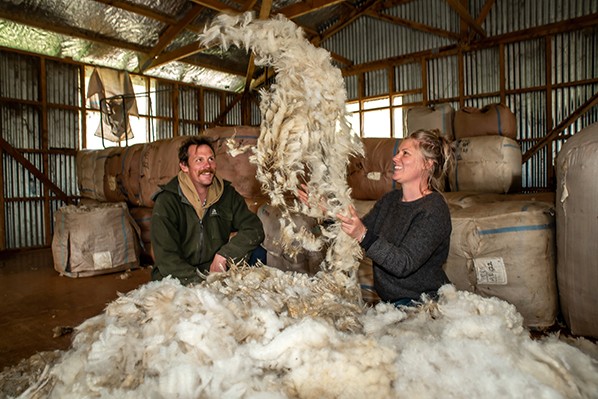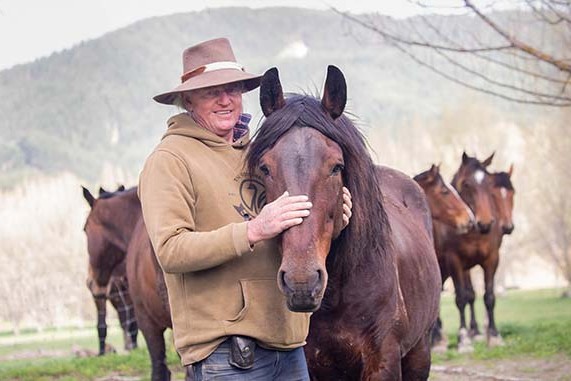Story and photos by: Karen Trebilcock
There are now more than a hundred catchment groups throughout the country, and if you haven’t got one in your area that you can join, maybe it’s time you began thinking about starting one yourself.
Catchment groups get all farmers in an area together – not just dairy and including forestry – to work on improving the waterways that run through their land.
Some include towns, making sure urban people get involved and are doing their bit as well. DairyNZ, NZ Landcare Trust, Beef + Lamb NZ and regional councils all support catchment groups, and if you are not sure if one is already set up in your area, get in touch with these organisations and they will be able to tell you.
NZ Landcare Trust has a map of catchment groups on their website, and there are still parts of the country, especially in the North Island, that don’t have them.
GETTING STARTED
Read about catchment groups on the internet, ring your neighbours, organise a get-together and see if you have enough people interested to share the workload. Figure out your catchment boundaries, a few goals, and if it’s a “yes” then it is time to get the whole community on board.
Advertise a public meeting and get people involved. Invite someone from one of the support organisations, such as Landcare Trust, who has had experience with other catchment groups to explain how it all works. Figure out what is important to everyone about their catchment – what they use it for.
It might be for fishing, swimming, irrigation, duck shooting or stock drinking water. Maybe it’s home to endangered, native species, both in and above the water. Or maybe it’s home to some species such as rats that you would rather do without.
It’s a start that will then allow the group to set some short-term goals, such as water testing and a stock take of the environment, and longer-term goals such as riparian planting and predator control.
Maybe you once swam in the river but now are worried about letting your children do it because of the water quality. Having a goal of making it safe to swim in again will energise a group to test the water regularly and figure out what is going on and why.
RESOURCES
Do a stocktake of what you have got. Pooling local knowledge is great, but also see if there is water monitoring testing already being done by your regional council and find out what information they have.
Fish and Game and the Department of Conservation might also be able to help.
Also do a stocktake of the skills of people in your group. Hopefully you have someone who is keen to take on the co-ordinator’s role, others who have easy access to the waterway for regular water testing, and someone who is good with finances and filling in funding applications.
Water testing and planting riparian strips takes money but catchment groups can apply for a variety of funds worth hundreds of thousands of dollars.
You can establish your catchment group as either an incorporated society or a charitable trust, which helps with funding applications. You may wish to set up member subscriptions as well, and some larger catchment groups pay their co-ordinator for their time.
As well, you can set up a website about your catchment and include the group’s aims and progress, which can become a historical record of what you have achieved. And there might be someone with an empty tunnel house who likes growing seedlings, and others who love an excuse for a day in the bush or along the river to collect native seeds for them. Or someone who is keen on predator control and wants a supply of possum fur.
Or someone who wants to set up motion sensor cameras to see what is really out there living along your river banks.
Figure out what is important to everyone about their catchment – what they use it for. It might be for fishing, swimming, irrigation, duck shooting or stock drinking water.
GET TOGETHER SOCIALLY
The social side of catchment groups should never be forgotten. Make sure your group includes all members of families for various activities such as planting areas, collecting rubbish, weeding, get-togethers over a shared barbecue or visits to special areas in the catchment.
Keep it fun and people will want to be involved.
Include all landowners but also think about the community groups, churches and iwi in your area.
Organise a bus trip for a retirement village or a school outing, to raise awareness of your goals and ambitions across the community. They may also be keen to contribute either financially or with their time.
Bird watchers, duck shooters, whitebaiters and fishermen who live outside the area but are users of the catchment should also be included, and will be valuable both with their knowledge and time. Getting everyone together gives them ownership of the waterway collectively and a common goal all can work towards.
It also allows people to feel connected to the streams and rivers in their area, even though they might not flow through their farms.What you do on your land will eventually affect your nearest waterway, and catchment groups can give a greater understanding of it.
Use scientists as well as water and soil experts to help figure out what is going wrong and what can be done.
INVOLVE TOWNIES
Don’t forget urban areas and make sure they have adequate wastewater (sewage) and storm water systems so they’re not undoing farmers’ hard work.
If they have a consent to discharge wastewater into your catchment, then approach your councillors to get it stopped.
Many people in towns do not know where their wastewater goes, and with some older homes water from roofs goes into the wastewater instead of the stormwater systems, creating problems in times of heavy rain. Getting them to understand the importance of their plumbing would be a huge win.
And remember the local newspaper, radio station and Facebook groups. The more information you can get out there about what the catchment group is doing, and what still needs to be done, will energise people and encourage them to get involved.
It may be just a river you are looking after, but in the end it could be your whole community.




